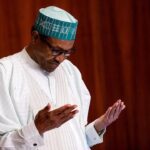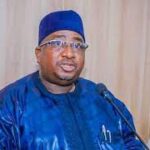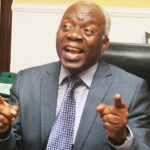
Weekend Magazine: You’re an award-winning movie director who’s screened films around the world. How has the journey been so far?
Kenneth Gyang: The journey has really been fun and as Nigerians will say, an eye-opener. With our first film ‘Confusion Na Wa’, it won quite a couple of international awards like the Jury Prize at the Pan African Film Festival in Los Angeles and of course the overall Best Film at the Africa Movie Academy Awards.
When I was first getting into film, I was fascinated at how the works of Ousmane Sembene, Gaston Kabore and Idrissa Ouedrago were studied in schools abroad. I wanted that sort of attention, because for me, apart from economic gains, I wanted to be the sort of filmmaker whose works can be used as reference for modern African studies. In 2015, we were invited to screen a film at the Africa Studies meeting in Indianapolis, the biggest gathering of African Studies scholars in the world. ‘Confusion Na Wa’ was selected to screen alongside another. The film was introduced by a renowned scholar on African films. From there, I was invited to showcase ‘Confusion Na Wa’ at Michigan State University, Oklahoma University and University of Georgia, all in the US. For me, it was the sort of impact I wanted my film to have as an artist, to be recognised both locally and internationally.
Talking about international, the Nigerian movie industry hasn’t had a movie like ‘City of God’ or the Vietnamese film ‘Three Seasons’. Despite being unsentimental portraits of the societies of their countries, they proved such a tremendous benefit to their local movie industries. That this has not happened for the Nigerian movie industry, in my view, is not only due to a lack of financial means, which is mostly the case, but most importantly, it seems to me, that Nigerian filmmakers have as yet largely stayed clear of making serious films with issues that will resonate with both the local, wider Africa and beyond. Locally, ‘Confusion Na Wa’ birthed the rise of indie films. It inspired a generation of filmmakers to make films with non-conformist stories. I am really glad that I contributed to the growth of Nigerian cinema and the fearlessness of real indie filmmakers from Nigeria.
WM: What’s your process like, when you’re choosing a project to work on?
Gyang: Making a film is not about churning out films month in, month out. There is a development stage where you have to choose the right project before embarking on it. For me, I see film as an art form and I have to agree with the subject before embarking on it. I usually don’t make films based on stories you could find in gossip columns. I always look out for thought provoking projects which is why there is always a significant gap between my films. But in between ‘Confusion Na Wa’ and ‘The Lost Café’ though, I worked on TV series and documentaries. One of the TV series I worked on, ‘Sons of the Caliphate’ was hugely successful.
WM: Your new film, ‘The Lost Cafe’, is garnering rave reviews already. When is it being released and what should fans expect?
Gyang: ‘The Lost Café’ is an uplifting story about a young Nigerian woman’s decision to rise above dark family secrets and culture shock to live her dreams abroad. In the unfamiliar world of Norway she forms an unlikely bond with the ageing owner of a coffee shop and finds unusual answers to her most troubling questions.
The film was produced by Regina Udalor and executive producer, Akor Udalor. It was shot in Calabar, Nigeria and Norway. We are having a Norwegian premiere on the 1st of September 2017 in Norway and the Nigerian premiere handled by the Norwegian embassy is coming up on the 3rd of October 2017.
‘The Lost Café’ has all the elements of cutting it both in the local market and of course internationally. And a film with the elements I am talking about has a greater chance of being accepted both critically and commercially. I am still positive that film will inspire another generation of filmmakers and it always feels good to be at the forefront of these changes.
WM: What exactly did you set out to achieve with ‘The Lost Cafe’, and do you feel you’ve succeeded?
Gyang: Well, we had challenges at first because we tried raising fund to shoot it in Barcelona, Spain but it was too expensive so we had to opt for Norway where the producers are living. Technically, we have made the sort of story we set out to make. We wanted to make a film that can stand toe-to-toe with any film out there in terms of story and delivery by actors. We also wanted to touch on story of immigration, depression and friendship. Looking back from the feedback we got in Norway, we have been able to achieve what we set out to do from the word go and Regina and Akor Udalor seem happy about the results.
WM: Do you think Nigerian filmmakers are telling stories which need to be told, and in a way they should?
Gyang: Nigerian filmmakers are always moving with the crowd. If you make a successful film that is comedy, everyone follows to say that is what the audience want. For me, I have moved beyond all of that and I am cultivating my own audience. So far, the response to all my films is positive and I will continue to make the sort of films that appeal to me and those audiences.
WM: Which of your movies would you say is the most successful so far, and why?
Gyang: ‘Confusion Na Wa’ is by far the most successful in terms of reach. I really feel bad for ‘Blood & Henna’ which was executive produced by Alhaji Ibrahim Buba of Newage Network. It was never released so people never got to see how much of a powerful film it is. The few people who have seen it, are lucky. It was done basically to be an eye-opener regarding the North and their reception of polio vaccination after the illegal clinical test carried out by a pharmaceutical company in 1996.
WM: You’ve made movies in English, and in Hausa. Which one of the two languages do you prefer to work in?
Gyang: I always prefer to work in English because I have pool of actors I can tap from all over Nigeria. Making Hausa films to me is very personal because most of the actors understand what I am looking for and they always ensure they give me their best.
WM: After ‘The Lost Cafe’, what movie do you have lined up to make?
Gyang: We are currently developing our next feature film called ‘El Dorado Road’. It will be produced by me and Olabode Moses. The script is written by long-term Brit collaborator Tom Rowlands-Rees. El Dorado Road is the first project from West Africa, and one of the few ever projects from Africa, ever taken into EAVE Producers Workshop which is meant for an elite group of producers who want to widen their nets in Europe and beyond. We are currently at the financing stage.
that Nigerian filmmakers have as yet largely stayed clear of making serious films with issues that will resonate with both the local, wider Africa and beyond. Locally, ‘Confusion Na Wa’ birthed the rise of indie films. It inspired a generation of filmmakers to make films with non-conformist stories. I am really glad that I contributed to the growth of Nigerian cinema and the fearlessness of real indie filmmakers from Nigeria.
WM: What’s your process like, when you’re choosing a project to work on?
Gyang: Making a film is not about churning out films month in, month out. There is a development stage where you have to choose the right project before embarking on it. For me, I see film as an art form and I have to agree with the subject before embarking on it. I usually don’t make films based on stories you could find in gossip columns. I always look out for thought provoking projects which is why there is always a significant gap between my films. But in between ‘Confusion Na Wa’ and ‘The Lost Café’ though, I worked on TV series and documentaries. One of the TV series I worked on, ‘Sons of the Caliphate’ was hugely successful.
WM: Your new film, ‘The Lost Cafe’, is garnering rave reviews already. When is it being released and what should fans expect?
Gyang: ‘The Lost Café’ is an uplifting story about a young Nigerian woman’s decision to rise above dark family secrets and culture shock to live her dreams abroad. In the unfamiliar world of Norway she forms an unlikely bond with the ageing owner of a coffee shop and finds unusual answers to her most troubling questions.
The film was produced by Regina Udalor and executive producer, Akor Udalor. It was shot in Calabar, Nigeria and Norway. We are having a Norwegian premiere on the 1st of September 2017 in Norway and the Nigerian premiere handled by the Norwegian embassy is coming up on the 3rd of October 2017.
‘The Lost Café’ has all the elements of cutting it both in the local market and of course internationally. And a film with the elements I am talking about has a greater chance of being accepted both critically and commercially. I am still positive that film will inspire another generation of filmmakers and it always feels good to be at the forefront of these changes.
WM: What exactly did you set out to achieve with ‘The Lost Cafe’, and do you feel you’ve succeeded?
Gyang: Well, we had challenges at first because we tried raising fund to shoot it in Barcelona, Spain but it was too expensive so we had to opt for Norway where the producers are living. Technically, we have made the sort of story we set out to make. We wanted to make a film that can stand toe-to-toe with any film out there in terms of story and delivery by actors. We also wanted to touch on story of immigration, depression and friendship. Looking back from the feedback we got in Norway, we have been able to achieve what we set out to do from the word go and Regina and Akor Udalor seem happy about the results.
WM: Do you think Nigerian filmmakers are telling stories which need to be told, and in a way they should?
Gyang: Nigerian filmmakers are always moving with the crowd. If you make a successful film that is comedy, everyone follows to say that is what the audience want. For me, I have moved beyond all of that and I am cultivating my own audience. So far, the response to all my films is positive and I will continue to make the sort of films that appeal to me and those audiences.
WM: Which of your movies would you say is the most successful so far, and why?
Gyang: ‘Confusion Na Wa’ is by far the most successful in terms of reach. I really feel bad for ‘Blood & Henna’ which was executive produced by Alhaji Ibrahim Buba of Newage Network. It was never released so people never got to see how much of a powerful film it is. The few people who have seen it, are lucky. It was done basically to be an eye-opener regarding the North and their reception of polio vaccination after the illegal clinical test carried out by a pharmaceutical company in 1996.
WM: You’ve made movies in English, and in Hausa. Which one of the two languages do you prefer to work in?
Gyang: I always prefer to work in English because I have pool of actors I can tap from all over Nigeria. Making Hausa films to me is very personal because most of the actors understand what I am looking for and they always ensure they give me their best.
WM: After ‘The Lost Cafe’, what movie do you have lined up to make?
Gyang: We are currently developing our next feature film called ‘El Dorado Road’. It will be produced by me and Olabode Moses. The script is written by long-term Brit collaborator Tom Rowlands-Rees. El Dorado Road is the first project from West Africa, and one of the few ever projects from Africa, ever taken into EAVE Producers Workshop which is meant for an elite group of producers who want to widen their nets in Europe and beyond. We are currently at the financing stage.
 Join Daily Trust WhatsApp Community For Quick Access To News and Happenings Around You.
Join Daily Trust WhatsApp Community For Quick Access To News and Happenings Around You.


